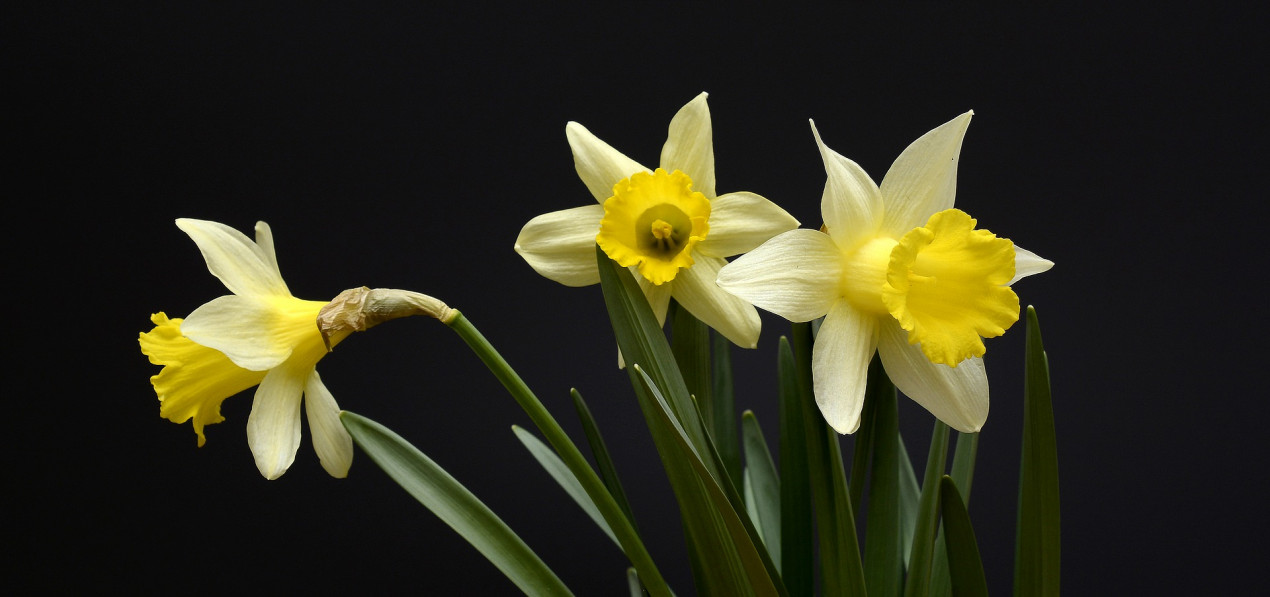
Dog owner tells how toxic flower could have killed her pet
RILEY the playful Labrador had a lucky escape after eating a daffodil.
The dog had been having fun in his owner Kath Pottinger’s garden when he swallowed the bulb of the toxic plant.
Riley became seriously ill and was rushed to his daytime vets, Vets4Pets in Dudley, before being transferred to Vets Now in Birmingham for overnight treatment.
Emergency vets are now warning other dog owners to be on their guard so the same thing doesn’t happen to them.
Handpicked related content
Kath said: “Riley came to live with me when he was eight weeks old after my lovely St Bernard had passed away.
“When he was six months old, we went to do some gardening. I noticed he was playing with a daffodil bulb, which he’d pulled up.
“I tried to take it off him, but he thought it was a game. Being 73, I got tired and said to myself; I’ll take it off him when he gets tired.
“Eventually we went back into the house, and Riley started to tremble and growl. He then fell over, and I knew he needed a vet.”
She added: “I text my daughter, and we took him to the vet – he was very poorly and needed to be put on a drip.
“The vet rang my daughter at 3 am to say that Riley’s condition had worsened and could she give him some drugs. We agreed and Riley placed was on a drip for 48 hours with the vets working very hard to save him.”
Why are daffodils toxic to dogs?
Daffodils contain toxic alkaloids and glycosides. While these are found throughout the flower, the highest levels are in the bulbs.
The bulbs also contain poisonous calcium oxalate crystals which can cause dermatitis.
According to the Veterinary Poisons Information Service, cases of daffodil poisoning have been reported following dogs eating both bulbs and flowers or stalks.
However, severe poisoning is rare, and most cases only suffer gastrointestinal problems such as vomiting and diarrhoea.
Other signs that may develop are drooling, abdominal pain, lethargy and hyperthermia, although these tend to last no more than 24 hours.
Poisonings as a result of exposure to plants are relatively common in dogs and cats.
One recent study of 2,150 animal poisoning cases found that almost 6% were due to flowers and plants.
Oleander, poinsettia, azalea, rhododendron and jasmine were the most common culprits.
Treatment may be needed if your dog eats something poisonous so please contact your vet as soon as possible, or, out of hours, find your nearest Vets Now pet emergency clinic or Vets Now 24/7 hospital.
